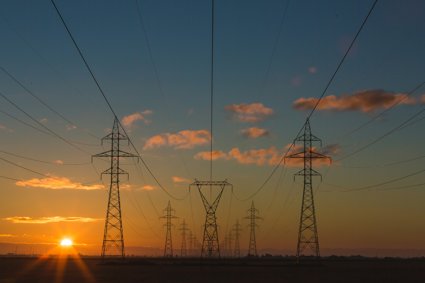
Lesson one: Case study
Key question
How reliant have we become on energy?
Aim:
-
To explore how your school uses energy and how reliant it is on fuel
-
To look at what has happened in Bulgaria over time and how this has affected oil and gas availability
-
To look at how much energy we waste and how we do this
Starter
Look around you and identify the ways in which energy is currently being consumed.
Which of those uses could you most easily live without at the moment?
Mentally turn off the energy – what impact would this have on the functioning of the school?
As a class, answer the following questions:
-
Where does this energy come from?
-
What fuel(s) or renewable source is being used? (energy is a secondary form of energy, almost an invisible energy, but it is being generated somewhere - is that a local power station or one more distant?)
-
Who pays the bill?
-
What efforts are being made to reduce that bill or to source a renewable energy source?
-
What infrastructure is required to transfer the energy to your home or school?
-
What would happen if the energy was turned off?
But how does this link to Ralitsa’s research?
In January 2009 the gas pipeline to Bulgaria was turned off in a dispute over prices. For 24 days, the country was without gas, an impact which was described by an energy minister as being like "a terrorist attack". The country lost a great deal of money as the economy slowed. When a country is reliant on others for its energy it is vulnerable in this way. Bulgaria was energy self-sufficient until 2004. The message for the UK (and other EU countries) is simple: where is the energy going to come from into the future? As well as food and water security, energy security is becoming an issue. There is also a growth in fuel poverty: where people spend a large proportion of their income on fuel costs. These lessons will explore these issues from Ralitsa’s research in more detail.
Main Activity
For this lesson, we are going to travel from the UK to Bulgaria, to look at a country which has had a lot of changes in its energy use in recent years. Use an atlas to find out where Bulgaria is, how big it is compared to other countries and what countries it is near.
Our researcher Ralitsa visited Bulgaria in the summer of 2011 to speak to people about the use of energy in the country. Watch this video on YouTube by way of introduction.
What questions does this:
-
Answer?
-
Create for you?
But how does this link to Ralitsa’s research?
Bulgaria has a number of pipelines which run under the ground. These take oil and gas from one part of Europe to another. When the gas enters Bulgaria it becomes Bulgarian and then changes nationality as it leaves. A reminder that geography is about flows, and movements, as well as things that are more static. The oil changes nationality at the border. When we visit a place we carry a passport to prove our identity (another big geographical idea).
Interview task
The second half of this lesson relates to your imaginary great-uncle, who lives in Bulgaria. For many years, he worked in local politics in Sofia, the Bulgarian capital, before he retired. You have had a chat with him about his life, but his memories are a little confused, and some of the things he talked about were a long time ago, whereas others are more recent.
Put his memories in order – a timeline has been provided – so that you can see the changes that have happened over the last few decades with political change, membership of the EU, and now changing power relationships over oil.
What has happened within your lifetime?
-
Great Uncle memories
-
Great Uncle timeline
Some useful resources to use to help with the interview work:
Extension Task
Using the Factsheets that have been provided, complete the Bulgaria check-list activity sheet. Ralitsa says that one of the reasons that she chose to study in Bulgaria was that she could already speak the language. When you look at an image like the one downloadable below, can you see why that would be a benefit? It’s a map of the electrical grid by the way.
Plenary
How does Bulgaria compare with the pattern of energy change featured in the diagram (source http://www.csmonitor.com/World/Global-Issues/2010/1110/China-to-mold-future-world-energy-use-IEA)?
What changes has it been through in recent years ?
What might be some future energy issues that will face the country ?
Homework task
Vampire energy is a name used for the draining of energy which happens whenever devices are plugged in, even if they are not switched on. Many devices have a standby feature, and unless they are unplugged will still be consuming energy and therefore costing money.
You are going to become vampire hunters, armed with the most dangerous of weapons: two fingers and a thumb.
This weapon will be used to sap the vampire’s energy (i.e. pull out the plug).
Eating garlic is not compulsory!
Download the Vampire Hunters Guide and complete your dangerous mission.
